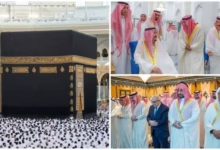Can Indian Muslims Be Represented Only by Muslim Leaders?

Understanding Representation Beyond Religious Identity
The notion that Muslims can only be represented by Muslim leaders is a common assumption, often reinforced by discussions on the declining number of Muslim legislators. Media narratives focus heavily on statistics to highlight political marginalization, while academic discourse relies on numerical data to argue for “descriptive representation”—the idea that legislative bodies should mirror the nation’s socio-religious diversity.
However, this perspective assumes a homogeneous Muslim community with uniform interests. A deeper exploration reveals that Muslim political engagement is shaped by multiple factors, including socio-economic concerns and regional dynamics. To move beyond simplistic assumptions, we must examine three critical aspects: the political identity of Muslims, the collective interests they seek to protect, and the role of Muslim leaders in addressing these concerns.
Identity: The Complex Fabric of Muslim Representation
In A Brief History of the Present: Muslims in New India (2024), Hilal Ahmed distinguishes between “substantive Muslimness” and the “discourse of Muslimness.”
- Substantive Muslimness reflects the lived experiences of Muslims, shaped by caste, language, class, sect, and regional dynamics.
- The Discourse of Muslimness is the broader narrative that defines Muslims through religious, historical, legal, and media-driven frameworks. This discourse portrays Muslims as a distinct religious minority, linking them to global Islamic narratives and historical constructs, which in turn influences self-perception.
Muslim identity in India operates like a pendulum, swinging between these localized realities and overarching narratives. This duality shapes both how Muslims see themselves and how they are perceived in the broader socio-political landscape.
Community Interests: Beyond Identity Politics
The CSDS-Lokniti Pre-Poll Survey 2024, conducted across 19 states with 10,019 respondents, provides valuable insights into Muslim priorities:
- 67% of Muslims cite unemployment as a major issue.
- 76% express concerns about inflation.
- 76% support including Dalit Muslims in the Scheduled Caste list, countering the assumption that Muslim concerns are solely identity-driven.
While economic and social concerns dominate, the Hindutva-driven political environment has reinforced apprehensions about safety and discrimination. The Sciences-Po-CSDS-Lokniti Survey on Muslim Leadership 2024 found that:
- 43% of Muslims believe they are treated unfairly by state authorities.
- 54% feel less safe than other communities.
This dual reality—focusing on economic issues while navigating an exclusionary political environment—demonstrates that Muslim interests are multifaceted, shaped by both immediate socio-economic needs and broader existential concerns.
Leadership: What Do Muslims Expect?
Muslim engagement with democratic processes remains strong:
- 51% of Muslims believe their vote matters.
- 62% voter turnout in 2024 reflects continued faith in electoral democracy.
However, representation is more complex than just electing Muslim leaders. Muslim political actors can be categorized into three groups:
- Professional Muslim Politicians – Directly engage with political parties and claim to represent Muslim interests.
- Muslim Elites – Use their social, religious, or economic status to assert leadership.
- Muslim Activists/Influencers – Shape public discourse and media narratives.
Get Morningislam News straight to your inbox
Survey data reveals diverse views on Muslim leadership:
- 50% of Muslims say a leader’s religion is not a primary voting factor.
- 30% believe only a Muslim leader can effectively represent them.
- 64% think India has honest and committed Muslim leaders.
- 64% also feel the country needs more articulate Muslim leaders.
This paradox suggests that while existing leaders are respected, there is a demand for stronger, more vocal representation. The Hindutva political climate has weakened the bargaining power of Muslim politicians, while non-BJP parties assume Muslim votes are secured, limiting their efforts to promote Muslim leadership.
Rethinking Representation
The idea that only Muslim leaders can represent Muslim interests is an oversimplification. Muslim political behavior is driven by economic challenges, safety concerns, and engagement with democratic institutions. While identity remains important, Muslim voters are pragmatic, balancing socio-economic priorities with the need for political representation. This complexity demands a more nuanced understanding of Muslim political aspirations—one that moves beyond numbers to recognize the evolving nature of Muslim engagement in Indian democracy.








